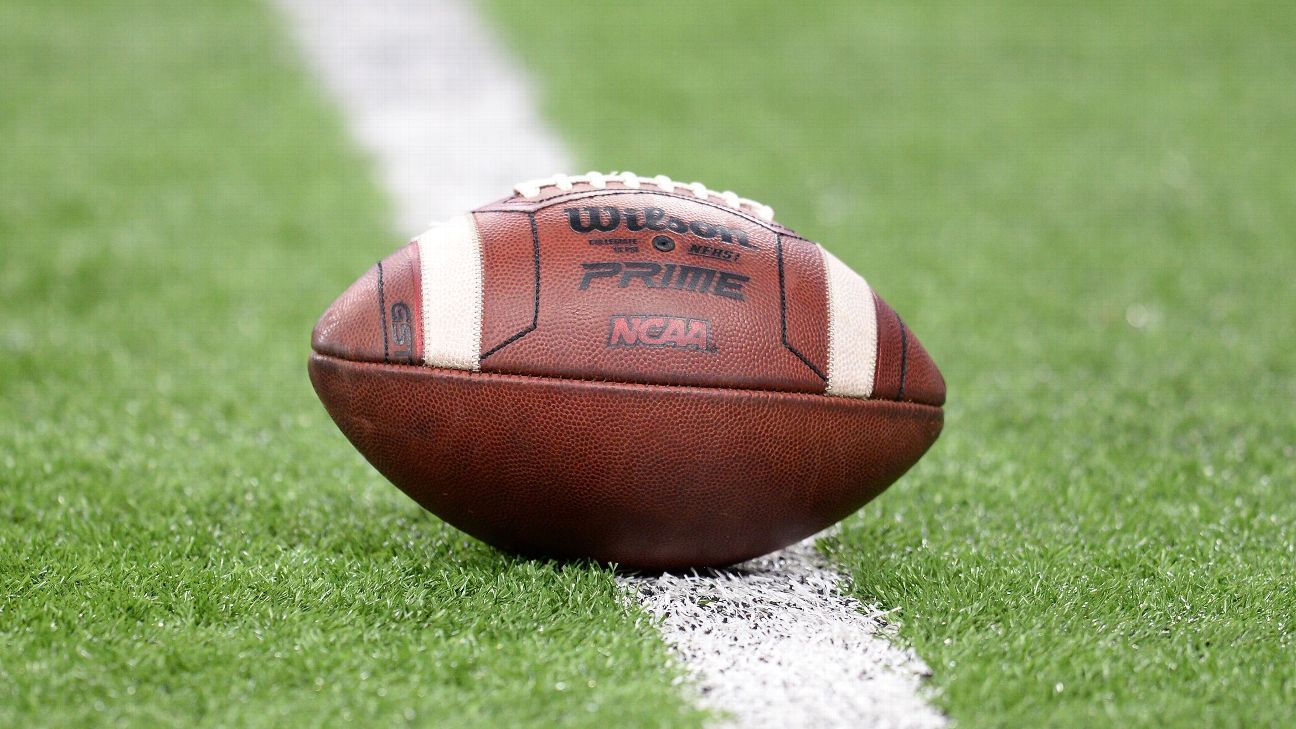For over 11,000 college football players, Thursday will be the first chance to opt in to EA Sports’ new college football game, EA Sports College Football 25, and get paid for it.
EA Sports has finalized its name, image and likeness plan and will begin the opt-in process. Up to 85 players per school will initially appear on rosters in the game, which comes out this summer.
All athletes who opt in to have their name, image and likeness appear will eventually receive $600, plus a copy of the game that’s typically valued at $70. Athletes would remain in the game for the entirety of their careers but could opt out of future editions if they choose. Athletes who remain in the game for multiple years will be paid annually, and players who transfer will continue to be compensated as long as they are on a roster.
“We feel very proud that we’ll be the largest program, likely the highest-spending program,” Sean O’Brien, EA Sports’ vice president of business development, told ESPN. “And really an inclusive opportunity with an equitable distribution of funds across the board.”
To help arrive at the $600 payment, O’Brien said EA Sports looked at deals completed with other sports titles, including the Madden NFL series, the NHL series and the company’s soccer game. EA Sports’ college football deal comes with no expected services by the athlete and will be guaranteed no matter the game’s success.
“There’s nothing been done on this scale that EA is doing, where every student-athlete that participates in the game is guaranteed revenue,” said Cory Moss, the CEO of the Collegiate Licensing Company, which has worked with EA on the game.
There will also be more than 100 additional NIL opportunities for athletes to work with EA Sports. These could include social media posts, on-campus promotions, advertisements or even being the game’s cover athlete.
And it might go further than college football players. O’Brien said EA Sports plans to pay athletes from other men’s and women’s college sports to promote the game.
Frank Arthofer, the president of OneTeam Partners, which worked with EA Sports on the licensing agreement, told ESPN that those NIL opportunities would be negotiated directly between EA Sports and the athletes. Arthofer said the scale for what EA Sports is trying to do with 11,000-plus opt-ins is “unprecedented.”
The ambassador program for the college football game will likely be larger than any other similar program it has for other EA titles, O’Brien said.
“The vehicle is obviously a college football game,” O’Brien said, “but we really want to celebrate the fact that we’re back in college in doing that.”
All 134 FBS schools have agreed to be in the game after the biggest potential holdout, Notre Dame, announced Tuesday that it would participate. Daryl Holt, EA Sports’ senior vice president and the group general manager of Tiburon Studios and American Football, told ESPN that no FCS schools will be in the game at launch.
Athletes must have an official university email address to receive the opt-in notice, O’Brien said, and EA Sports will insert the player once the school verifies the player is on the roster.
O’Brien said he believes the program they have set up will be able to handle any changes that might come to the college landscape in terms of the payment of players or future legislation. That includes the potential unionization of athletes, something EA is familiar with because of its work with the NFLPA and NHLPA.
“We feel very confident that nothing that happens in the future will put us in a position where we’ll have to exit because of the strategy we’ve implored right from Day 1,” O’Brien said.
Holt said individual players will not have face scans for at least the first year, since the logistics of attempting this with over 11,000 athletes would be very difficult. But EA Sports is working with schools and roster photos to “create a representative likeness of the player.”
If a player chooses to not be in the game, Holt said EA Sports will create a generic avatar based on the traditional strength or weakness of a position over the past decade for that school. Holt said they want to “make sure the program still represents the integrity and strength of how that team plays and what that program has done over the past recent history.”
Gamers will be allowed to create their own players, but Holt said the game will not allow an opted-out player to be created and inserted into the game.
“I won’t reveal how we’re dealing with that,” Holt said. “But yeah, you won’t be able to edit that.”
